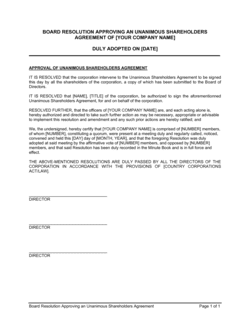7% Plunge: Amsterdam Stock Market Reeling From Trade War Intensification

Table of Contents
The Impact of Intensified Trade Tensions on the Amsterdam Stock Market
The escalating trade war measures have had a direct and negative impact on the Amsterdam stock market. Increased protectionist policies, including tariffs and trade restrictions, are disrupting Dutch businesses and undermining investor confidence. The direct link between these escalating tensions and the market downturn is undeniable.
-
Increased tariffs on Dutch exports: Higher tariffs on Dutch agricultural products, technology exports, and other goods have significantly reduced competitiveness in global markets, impacting profitability and growth for numerous companies listed on the Amsterdam stock exchange.
-
Disruption of supply chains: Trade restrictions are disrupting established supply chains, increasing costs and creating significant uncertainty for Dutch businesses reliant on international trade. This uncertainty is a major contributor to the market's volatility.
-
Uncertainty surrounding future trade policies: The unpredictable nature of the ongoing trade war creates significant investor fear. The lack of clarity surrounding future trade policies makes it difficult for businesses to plan for the future, impacting investment decisions and further contributing to the market downturn.
-
Specific sectors heavily affected: The technology, agricultural, and logistics sectors, all heavily reliant on international trade, have been particularly hard hit by the trade war's intensification. These sectors are experiencing reduced demand, supply chain disruptions, and increased operational costs, all reflecting in their stock performance.
Investor Sentiment and Market Volatility following the 7% Drop
Following the 7% drop, panic selling and a generally negative sentiment swept through the Amsterdam stock market. The market volatility has been significant, with major indices experiencing sharp fluctuations. This reflects a dramatic decrease in investor confidence and is influencing future investment decisions.
-
Decreased trading volume: Fear and uncertainty have led to a decrease in trading volume as investors adopt a wait-and-see approach. This lack of liquidity exacerbates market volatility.
-
Increased demand for safe haven assets: Investors are increasingly turning to safe haven assets such as gold and government bonds, seeking to protect their portfolios from further losses. This outflow of capital from the stock market further contributes to the downturn.
-
Analysis of market indicators: The VIX index, a measure of market volatility, has spiked significantly reflecting the heightened uncertainty and fear in the market.
-
Expert quotes: Financial analysts are expressing concerns about the prolonged negative investor sentiment and the potential for further market corrections if the trade war situation does not improve.
Government Response and Potential Mitigation Strategies
The Dutch government is likely to implement measures to stabilize the market and support affected businesses. Potential responses could include economic stimulus packages and support measures targeted at specific sectors. The effectiveness of these interventions will depend on their scale and the overall trajectory of the trade war.
-
Government statements and announcements: The government's public statements regarding the market downturn and its proposed actions are crucial in shaping investor sentiment. Clear and decisive communication can help to alleviate some of the uncertainty.
-
Potential tax cuts or subsidies: Targeted tax cuts or subsidies for businesses in affected sectors could help to mitigate the negative impact of the trade war. These measures aim to boost investment and stimulate economic activity.
-
Discussions of potential trade negotiations and agreements: The Dutch government's participation in international trade negotiations is crucial. New trade agreements could help to mitigate the negative impacts of existing trade restrictions.
-
Analysis of past government interventions: Examining the effectiveness of past government interventions in similar economic crises will inform current strategies and potentially improve their impact.
Long-Term Implications for the Dutch Economy and Amsterdam Stock Market
The intensification of the trade war has significant long-term implications for the Dutch economy and the Amsterdam stock market. The potential impact varies widely depending on the resolution of the trade conflict.
-
Potential impact on GDP growth: Continued trade tensions could lead to a significant reduction in GDP growth, impacting the overall economic health of the Netherlands.
-
Job losses and unemployment in affected sectors: Businesses struggling due to trade restrictions may be forced to lay off workers, leading to increased unemployment in specific sectors.
-
Long-term effects on foreign direct investment: Uncertainty surrounding the future trade environment could deter foreign direct investment, impacting the country's economic growth potential.
-
Predictions for market recovery timelines: The speed of market recovery depends heavily on the resolution of trade tensions and the effectiveness of government interventions.
Conclusion: Navigating the Aftermath of the Amsterdam Stock Market's 7% Plunge
The 7% plunge in the Amsterdam stock market highlights the significant impact of escalating trade war tensions. The resulting market volatility affects various sectors, demanding close monitoring of the situation. The long-term implications for both the Dutch economy and the global market are substantial. To navigate this challenging period, it's crucial to stay informed about the evolving situation, understand the implications for different investment strategies, and make informed decisions amidst the ongoing Amsterdam stock market volatility and trade war impacts. Seek further information from reputable financial news sources and consult with financial advisors to better understand your options during this period of stock market plunge.

Featured Posts
-
 Annie Kilner And Kyle Walker Social Media Posts Spark Poisoning Claims
May 24, 2025
Annie Kilner And Kyle Walker Social Media Posts Spark Poisoning Claims
May 24, 2025 -
 Frank Sinatras Marital History Wives Relationships And Lasting Legacies
May 24, 2025
Frank Sinatras Marital History Wives Relationships And Lasting Legacies
May 24, 2025 -
 Florida Film Festival 2024 Celebrity Sightings Mia Farrow And Christina Ricci
May 24, 2025
Florida Film Festival 2024 Celebrity Sightings Mia Farrow And Christina Ricci
May 24, 2025 -
 Escape To The Country Top Locations For A Tranquil Getaway
May 24, 2025
Escape To The Country Top Locations For A Tranquil Getaway
May 24, 2025 -
 Shareholders Unanimously Approve All Resolutions At Imcd N V Agm
May 24, 2025
Shareholders Unanimously Approve All Resolutions At Imcd N V Agm
May 24, 2025
Latest Posts
-
 Game Development Cuts Accessibility Features On The Chopping Block
May 24, 2025
Game Development Cuts Accessibility Features On The Chopping Block
May 24, 2025 -
 2025s Best Beaches Dr Beachs Top 10 Us Destinations
May 24, 2025
2025s Best Beaches Dr Beachs Top 10 Us Destinations
May 24, 2025 -
 The Accessibility Crisis As The Game Industry Contracts
May 24, 2025
The Accessibility Crisis As The Game Industry Contracts
May 24, 2025 -
 The Top 10 Us Beaches For 2025 A Dr Beach Ranking
May 24, 2025
The Top 10 Us Beaches For 2025 A Dr Beach Ranking
May 24, 2025 -
 Character Ai Chatbots And Free Speech A Legal Gray Area
May 24, 2025
Character Ai Chatbots And Free Speech A Legal Gray Area
May 24, 2025
